-
Progress update of workplace data
-
Future Trends
-
Latest Certified Workplaces
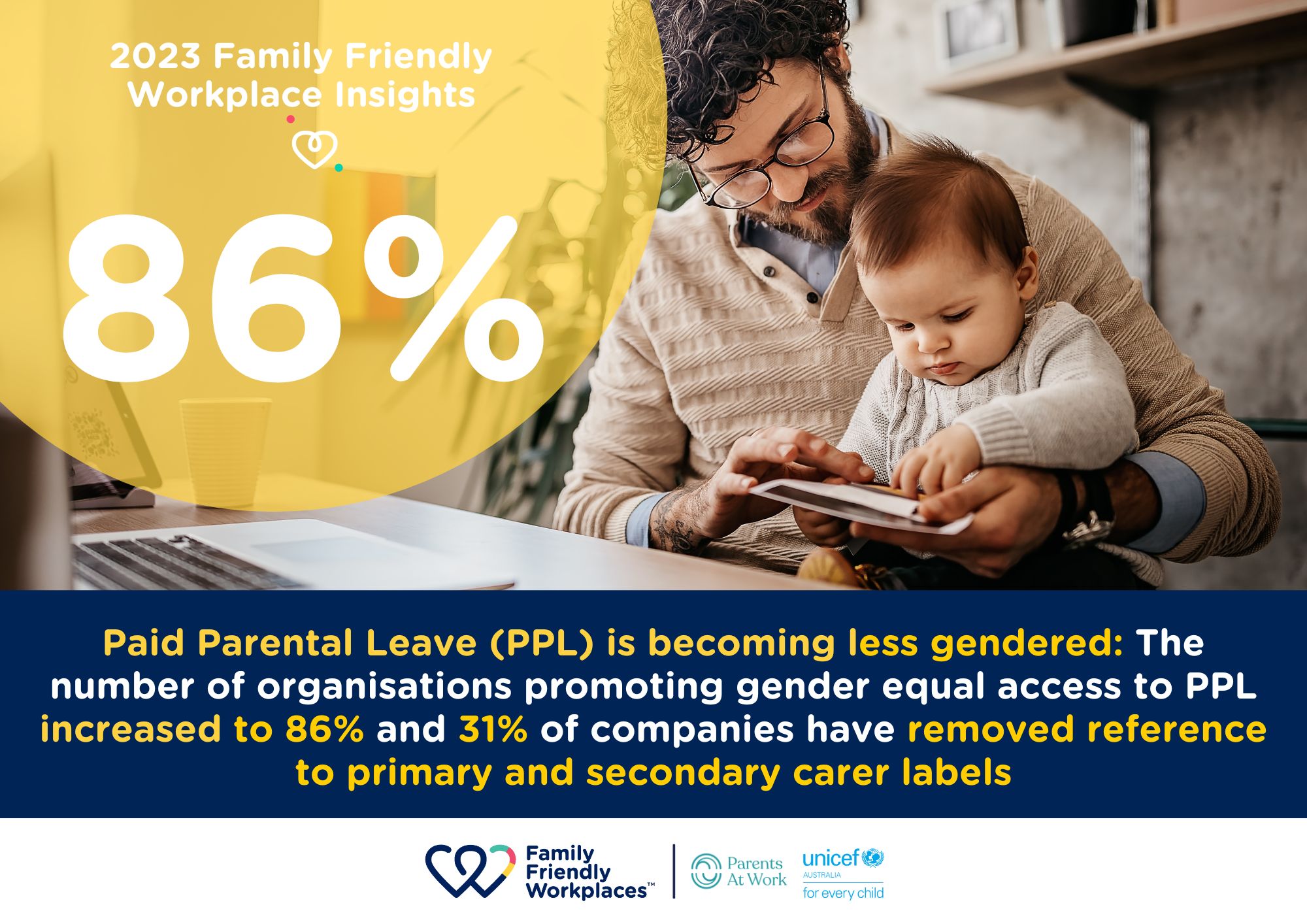
Today, Family Friendly Workplaces is proud to announce, as part of National Families Week 2023, the latest companies certified under the National Work + Family Standards.
Workplace data on the certified companies has also been released today. A follow on from the Bridging Work and Family Divide Report released last year it reveals some interesting statistics in the increased number of SME’s now applying for certification as well as trends for engaged workplaces and what they are doing to continue to lead the charge on creating a family inclusive nation.
Founder of Family Friendly Workplaces and CEO of Parents At Work Emma Walsh says:
“One of the consistently reported things employees are looking for is greater flexibility and work life balance – being certified helps organisations to set a roadmap to being more inclusive of their peoples’ work and home life needs and it sends a clear signal to employees that their work-life wellbeing matters.”
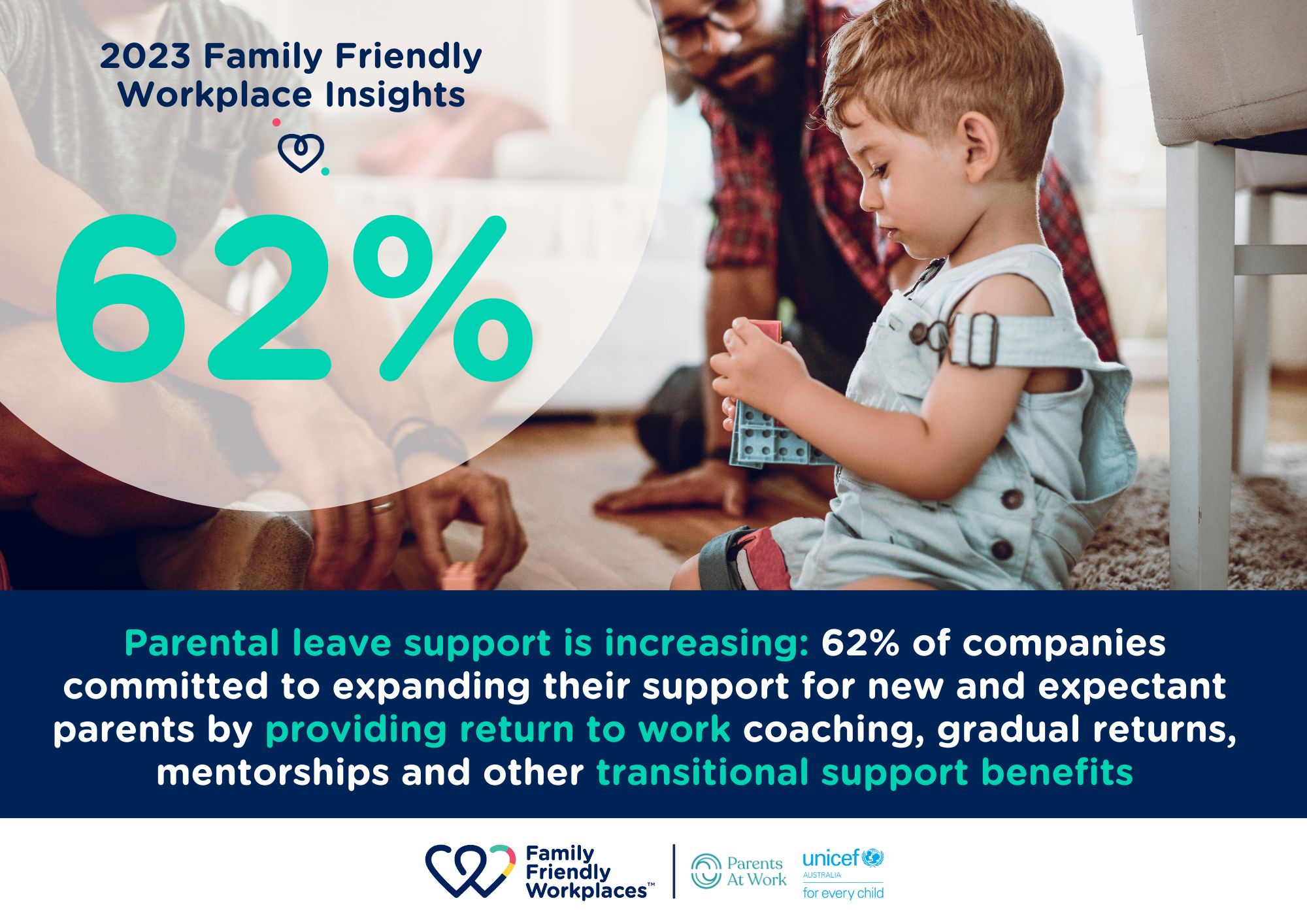 The Family Friendly Workplaces standards and certification program was launched in May 2021 by Parents At Work, UNICEF Australia and other corporate and community advocates, to help Australian workplaces to adopt inclusive people practices in an effort to improve equality and wellbeing outcomes.
The Family Friendly Workplaces standards and certification program was launched in May 2021 by Parents At Work, UNICEF Australia and other corporate and community advocates, to help Australian workplaces to adopt inclusive people practices in an effort to improve equality and wellbeing outcomes.
The Family Friendly Workplaces certification program measures employers against the National Work + Family Standards, providing them with a benchmark of minimum and best practice guidelines.
The Standards are designed to enable employers to identify and close gaps in their ESG and HR provisions that hold back equality and inclusion progress and impact work life wellbeing.
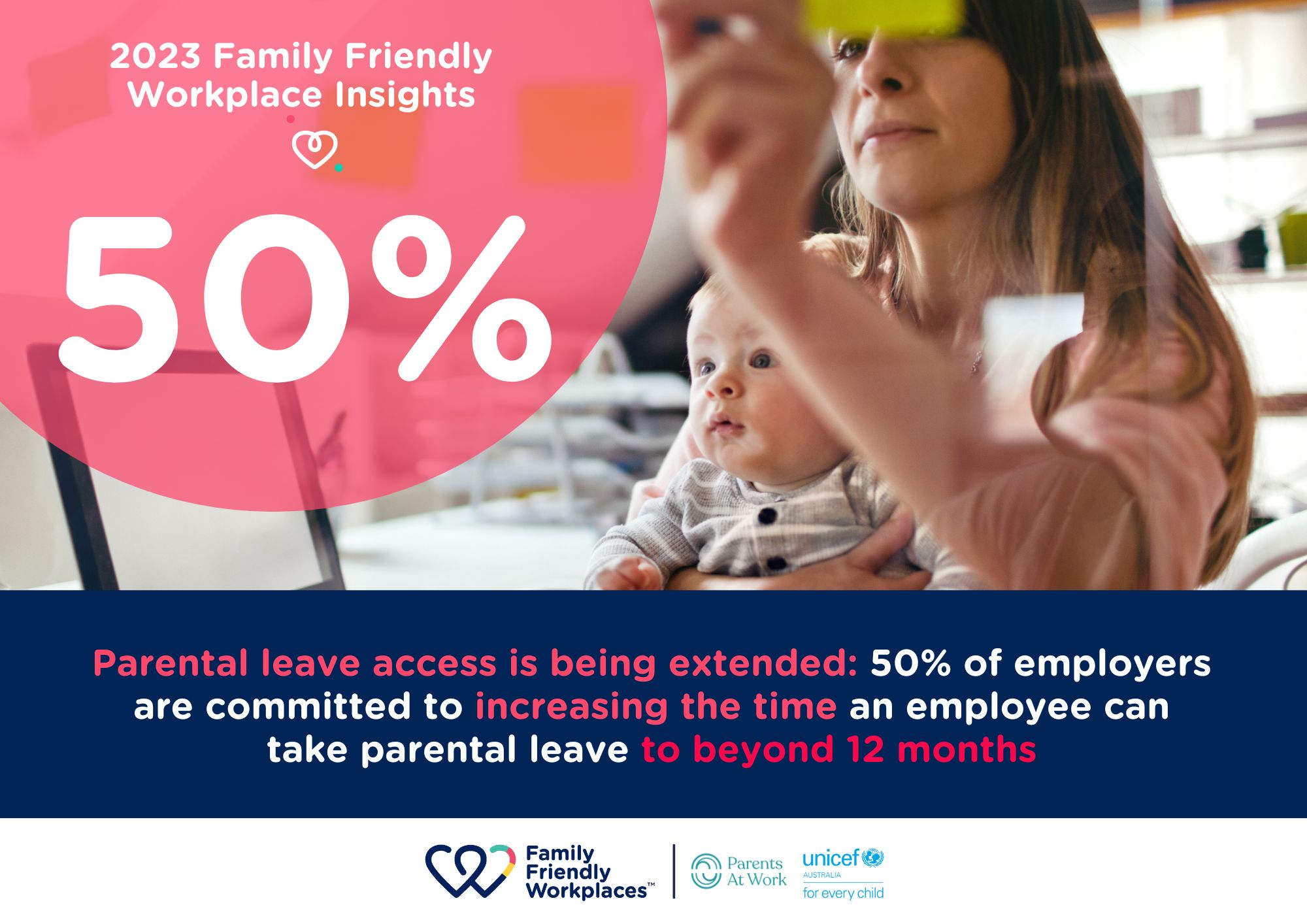 Six core categories make up the National Work + Family Standards covering flexible work, parental leave, family care, family wellbeing, leadership culture and measurement and have been updated in May 2023.
Six core categories make up the National Work + Family Standards covering flexible work, parental leave, family care, family wellbeing, leadership culture and measurement and have been updated in May 2023.
The updated 2023 data set reveals how employers are progressing since the release of the Bridging the Work and Family Divide Report 2022, as well as a look at what has shifted and what remains strong for employers that have made it a priority to create a family-inclusive workplace for their people.
Key Insights
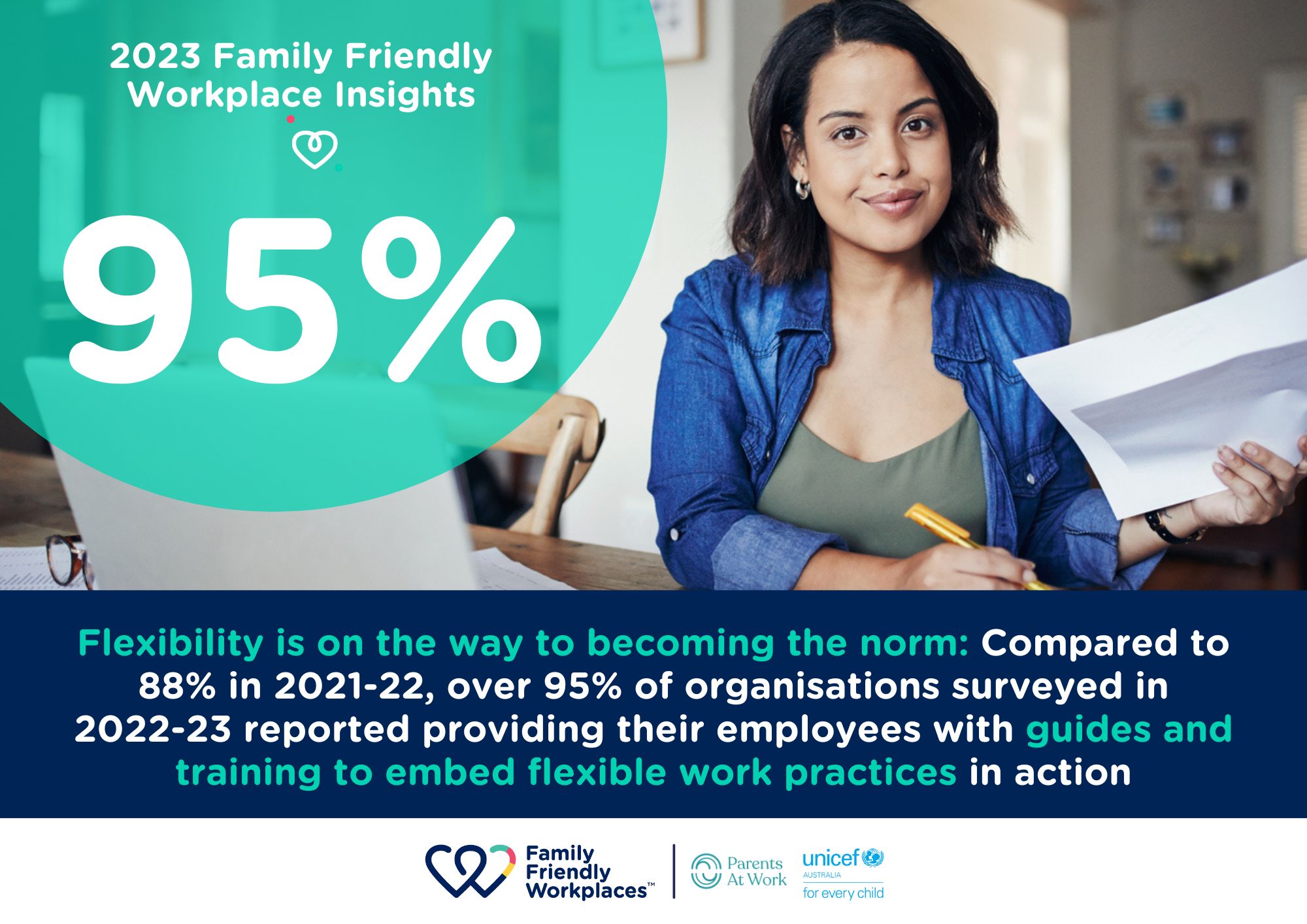
- Flexibility continues to be supported and normalised: Compared to 88% in 2021-22, over 95% of organisations surveyed in 2022-23 reported providing their employees with guides and training to embed flexible work practices in action across the organisational hierarchy, job types and location. Whilst a majority of these still acknowledge room for continual improvement and intend to focus on further enhancements.
- Paid Parental Leave (PPL) is becoming less gendered: The number of organisations promoting gender equal access to PPL increased by 12%, going from 74% in 2021-22 to 86% in 2022-23. Along those lines, 31% of companies have removed reference to primary and secondary carer labels – the number went up 5% compared to last year.
- Superannuation on parental leave is increasing: Almost 50% of PPL policies provide Superannuation on parental leave, compared to 47% last year.
- More Parental Leave support across the board: 62% of companies committed to expanding their support for new and expectant parents by providing return to work coaching, gradual returns, mentorships and other transitional support benefits. And 50% are committed to increasing the time an employee can take parental leave beyond 12 months, whilst 87% are committed to reviewing and updating their PL policy.
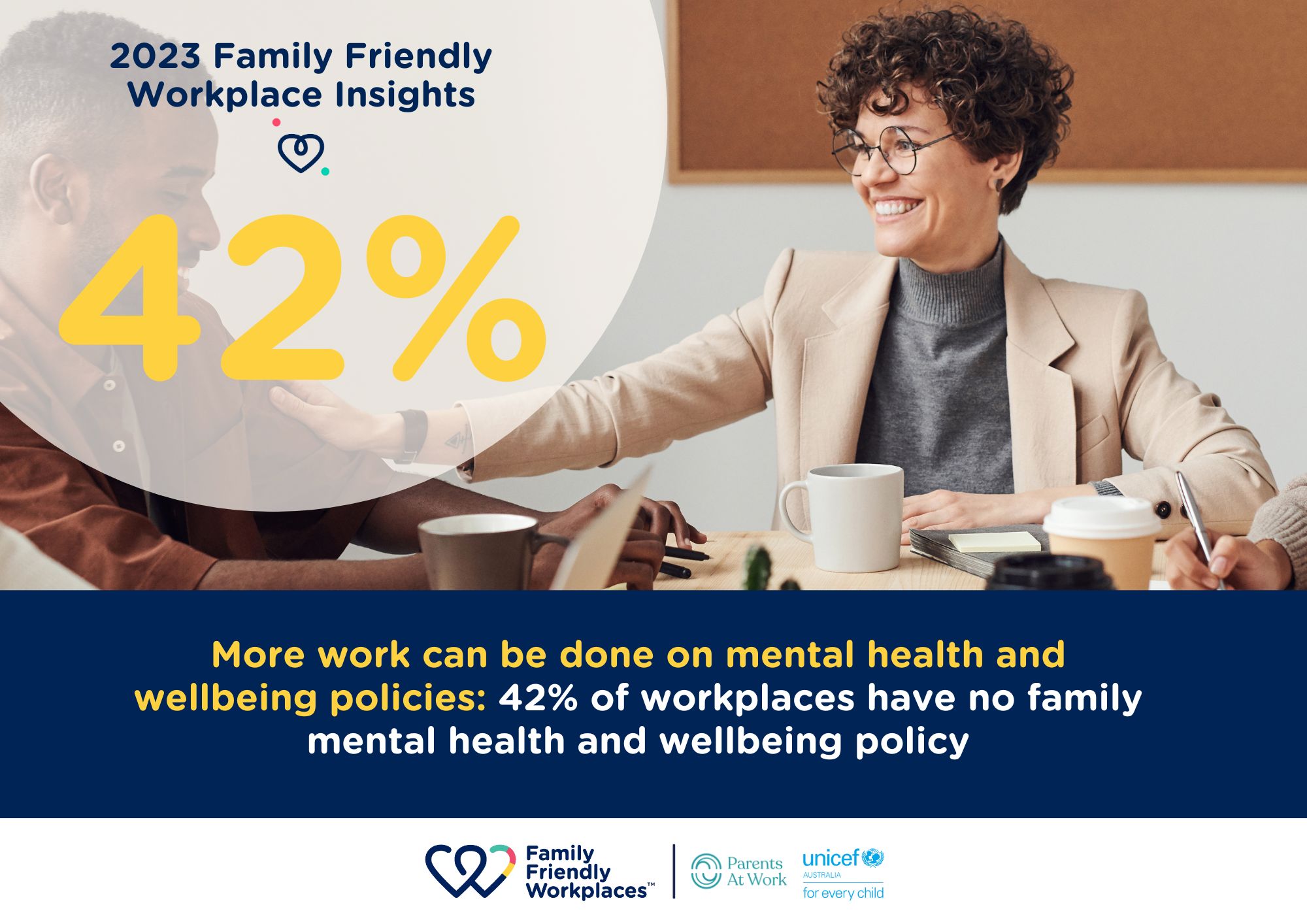 What are the key areas for improvement that remain a challenge?
What are the key areas for improvement that remain a challenge?
- Caring policies must be formalised and properly communicated: Only one third of organisations formally included caring needs of employees as part of the HR and Diversity and Inclusion agendas.
- More work can be done on mental health and wellbeing policies: 42% of companies have no formal family mental health and wellbeing policy.
- More support is needed to meet caring needs: 47% of organisations lack provisions of care support in place. Less than 22% assist employees with searches or referrals to providers of childcare, disability or aged care services and only 12% provide back-up/emergency care.
What are the future trends – what actions are employers taking to improve?
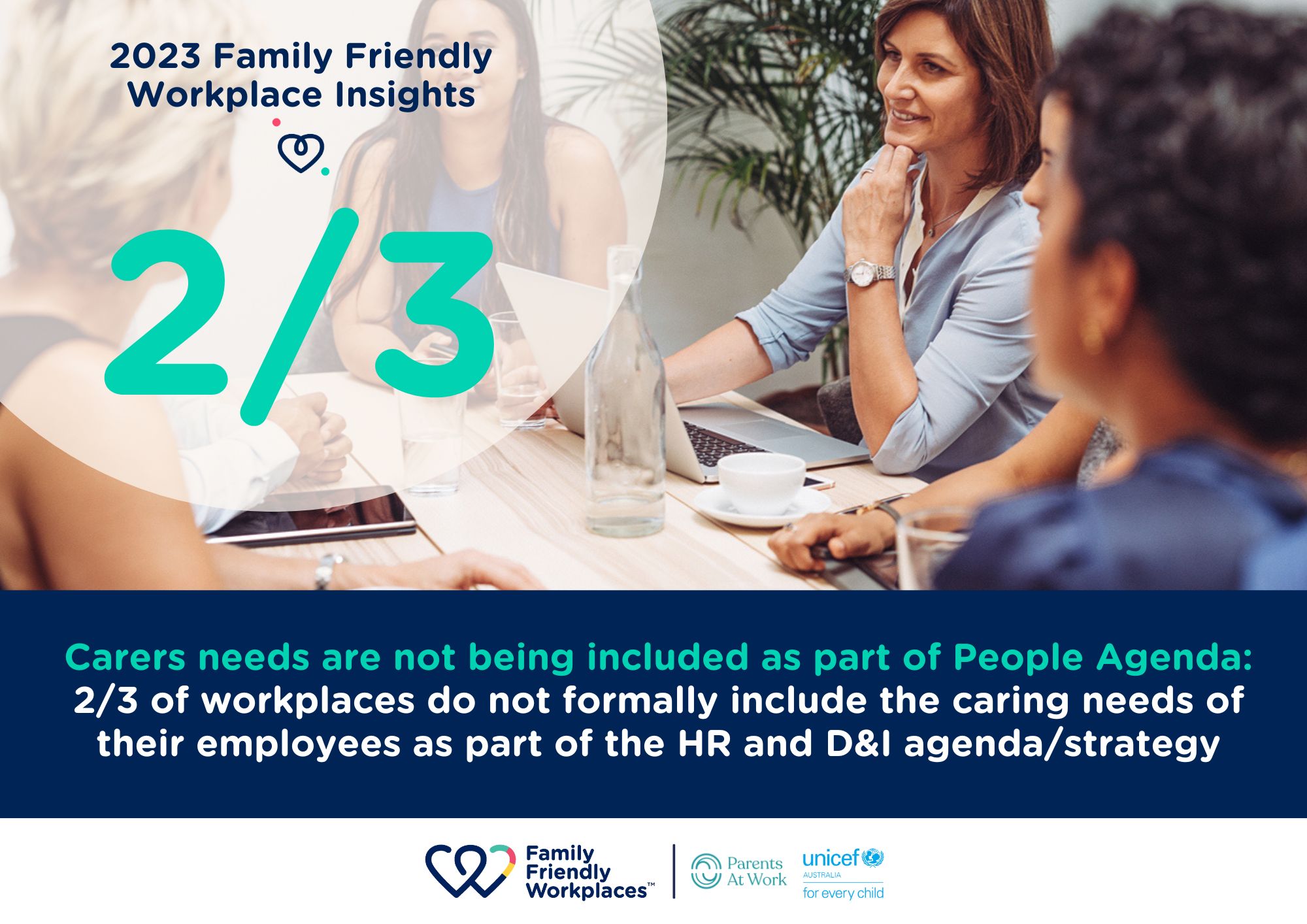
- Leadership is key
- More employers are increasingly committed to doing more to educate leaders on the importance of embedding family friendly work practices as part of the organisation’s people and culture diversity and inclusion strategy. There has been a significant increase in the shift to view leaders as critical enablers in driving the cultural change to create more family inclusive workplaces.
- Making Flexibility Work
- There has been an increase in the number of employers (68% to 81%) committed to enhancing their organisational practices to support flexible working. This includes providing examples of flexible work in action and utilising a hybrid or team-based or agile work allocation approach. It is encouraging that whilst many organisations have flexibly work on their agenda already due to Covid they are keeping it in their foresight as an area to continually improve on.
- Domestic Violence
- Companies are increasingly supporting Domestic and Family Violence victims. Nearly double (62%) the number of employers (compared to last year) are committed to extending the organisation’s Domestic and Family Violence (DFV) policy or framework.
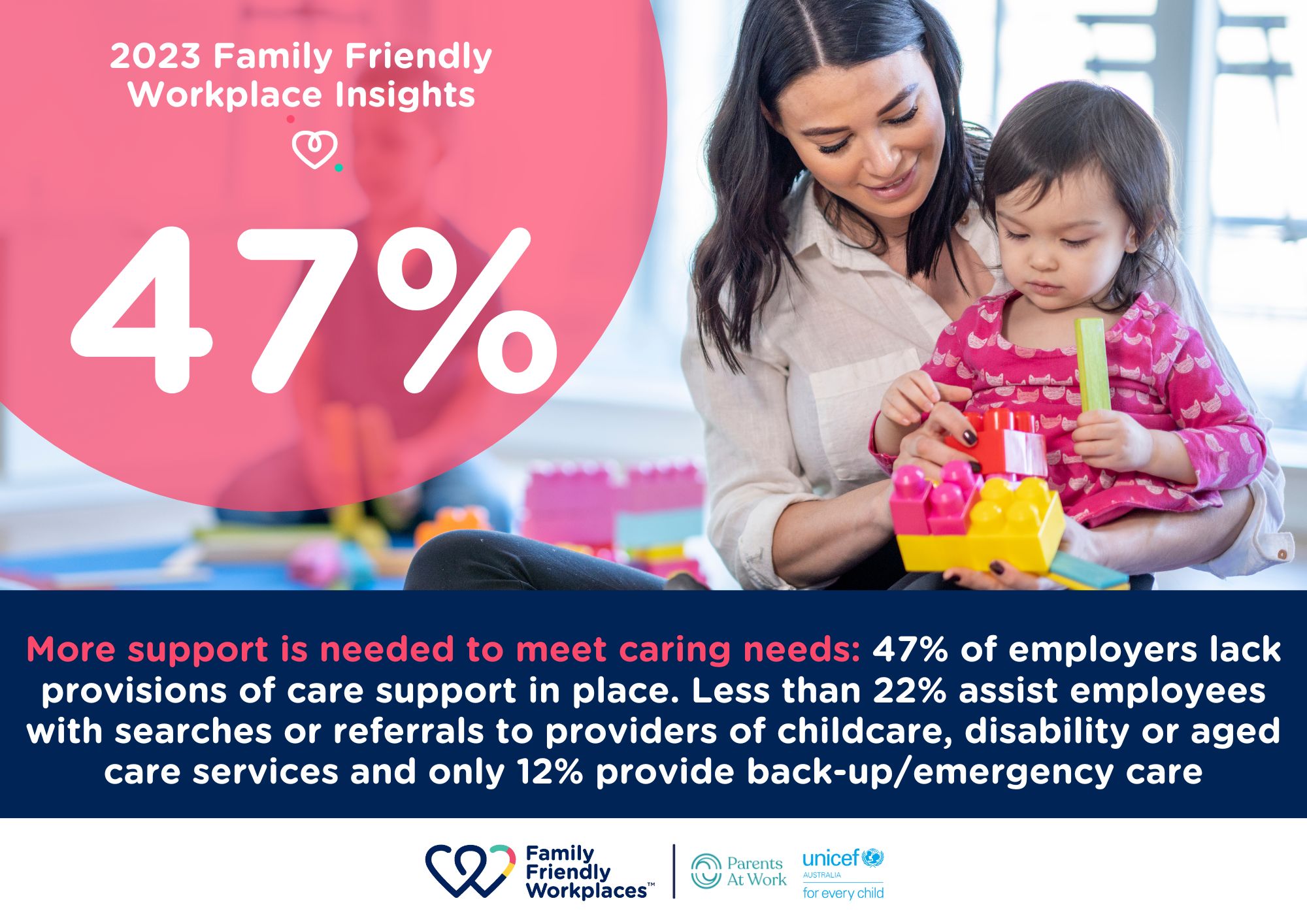
- Care provisions
- Companies are implementing a structured caregiver policy, broadening access to paid parental leave or expanding existing policy benefits. 56% of employers are committed to embedding a formalised carer’s policy or extending current policy provisions. About half of employers are committed to expanding inclusivity of the paid parental leave policy, such as removing primary/secondary carer labels and broadening the definition of family types. 37% of employers will expand ways of supporting employees with childcare and other forms of care for employees with caring responsibilities.
- Voice of Employee and measuring impact
- Employers are increasingly seeking feedback from their staff on family-friendly work practices. In fact, 81% of employers are committed to seeking increased feedback from employees, while the same percentage is committed to improving how they measure the effectiveness of those practices.
Family Friendly Workplaces
- Benchmarking: As of May 2023, 345 organisations have been benchmarked to National Work + Family Standards.
- Certification: As of May 2023, 104 are currently in progress or have already been certified.
Employers officially certified as a Family Inclusive Workplace
Accenture
Adica Insurance
AGL
ANZ
APRA
Art Processors
Baker McKenzie
BMS Risk Solutions
Built Holdings
Cardno
Carsales
CatholicCare Sydney
CBRE
CHU Underwriting Agencies
Clayton Utz
Cobild
Colin Biggers & Paisley
Comcast NBC Universal
Commonwealth Bank
Core Projects
Craveable Brands
Data#3
Deloitte
Dyson
Endeavour Energy
Genea
GPT
Grant Thornton
Gilchrist Connell
Group M
HCF Australia
Hesta
HSBC
Hudson Institute of Medical Research
IBM
IFM Investors
IKEA Australia
ING Australia
Investa Property
Jemena & Zinfra
Karitane
KFC South Pacific (Yum! Brands)
KPMG
Leidos
Lion
L’Oréal Australia
Macquarie
Marsh Australia
Medibank
Melbourne Airport
Mercer
Microsoft
Moray & Agnew Lawyers
MSD
Multiplex
Netwealth Investments
Norton Rose Fulbright
Novartis
Oliver Wyman
Organon
PepsiCo ANZ
Pernod Ricard Winemakers
PEXA
QBE Insurance
QLD Department of Education
Randstad RiseSmart
Randstad
Regional NSW
RES Australia
RPS
RSM Australia
Sandoz
Squire Patton Boggs
Steadfast Group
Sanofi
Sydney Airport
The Healing Foundation
The NRMA
Transgrid
Transport for NSW
UKG
UM
UNICEF Australia
VFMC
Viva Energy Australia
Volvo Car Australia
Workday
We’d like to acknowledge the support of our Family Friendly Workplace sponsor organisations and strategic partners:
Founding Partners – UNICEF Australia, Deloitte, QBE, CBA, Randstad Australia, Karitane and Novartis.
Supporting Partners – Accenture, AGL, APRA, Genea, HESTA, HSBC, IKEA, ING, KPMG, Macquarie Bank, Medibank, Comcast NBC Universal, Norton Rose Fulbright and Workday.
Strategic Partners – Australia Human Rights Commission, APLEN, Diversity Council of Australia, Domestic Violence NSW, Gidget Foundation, PANDA, The Parenthood, Rainbow Families, Village Foundation
To find out more about this initiative please contact [email protected]